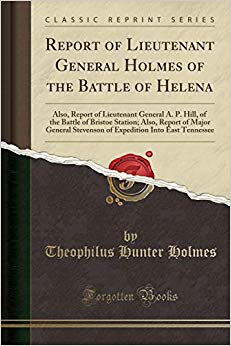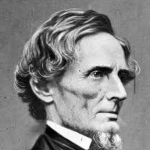Background
Theophilus Hunter was born on November 13, 1804, in Sampson County, North Carolina, United States. He was the son of North Carolina Congressman and Governor Gabriel Holmes and his wife Mary Hunter.

West Point, New York, United States
Holmes graduated from the United States Military Academy in 1829.

https://www.amazon.com/Report-Lieutenant-General-Holmes-Battle/dp/133383098X?SubscriptionId=AKIAJRRWTH346WSPOAFQ&tag=prabook-20&linkCode=sp1&camp=2025&creative=165953&creativeASIN=133383098X
Theophilus Hunter was born on November 13, 1804, in Sampson County, North Carolina, United States. He was the son of North Carolina Congressman and Governor Gabriel Holmes and his wife Mary Hunter.
Holmes graduated from the United States Military Academy in 1829.
Theophilus Holmes fought in the Florida Indian Wars from 1839 to 1842, served in the Texas army of occupation, and was breveted major at the Battle of Monterrey during the Mexican War.
From 1850 to 1859 he was on garrison duty and from 1859 to 1861, in command of the recruiting station on Governors Island, New York. Resigning on April 22, 1861, he returned to North Carolina, where he assisted the governor in the organization of the state's forces for the coming war and received command of the southern department of coast defense.
Holmes, an old friend of Jefferson Davis, was appointed brigadier general in the Confederate Army on June 5, 1861. After participating in the battle of First Manassas, he was promoted to major general on October 7, 1861. He commanded the Department of North Carolina and served as a division commander during the Seven Days' battles before his promotion to lieutenant general on October 10, 1862.
In the latter capacity, Holmes commanded the Trans-Mississippi West until relieved by General Edmund Kirby Smith in March 1863. Afterward, he had charge of the District of Arkansas, during which time he participated in the siege of Vicksburg and the attack on Helena in July 1863. In March 1864, he was given command of the Department of Fredericksburg.
Holmes was considered inefficient in the field by his superiors, and he was particularly disliked by General Daniel H. Hill. He returned to North Carolina late in 1864, where he directed reserve operations until the close of the war. He surrendered and was soon paroled.
After the war, he retired to a farm in Fayetteville, Cumberland County, North Carolina. Ashe, Cyclopedia of Eminent and Representative Men of the Carolinas.
The Raleigh Observer, June 22, 1880, editorially described Holmes as "simple in his tastes, brave, true, and just in his deportment a splendid example of an unpretentious North Carolina patriot and gentleman."
Holmes married Laura Wetmore in 1841. The couple had four sons and three daughters.
1769-1829
1776-1833
1817-1860
1842-1924
1851-1857
1860-1861

President Davis was Holmes's classmate at the Military Academy and his intimate friend.
